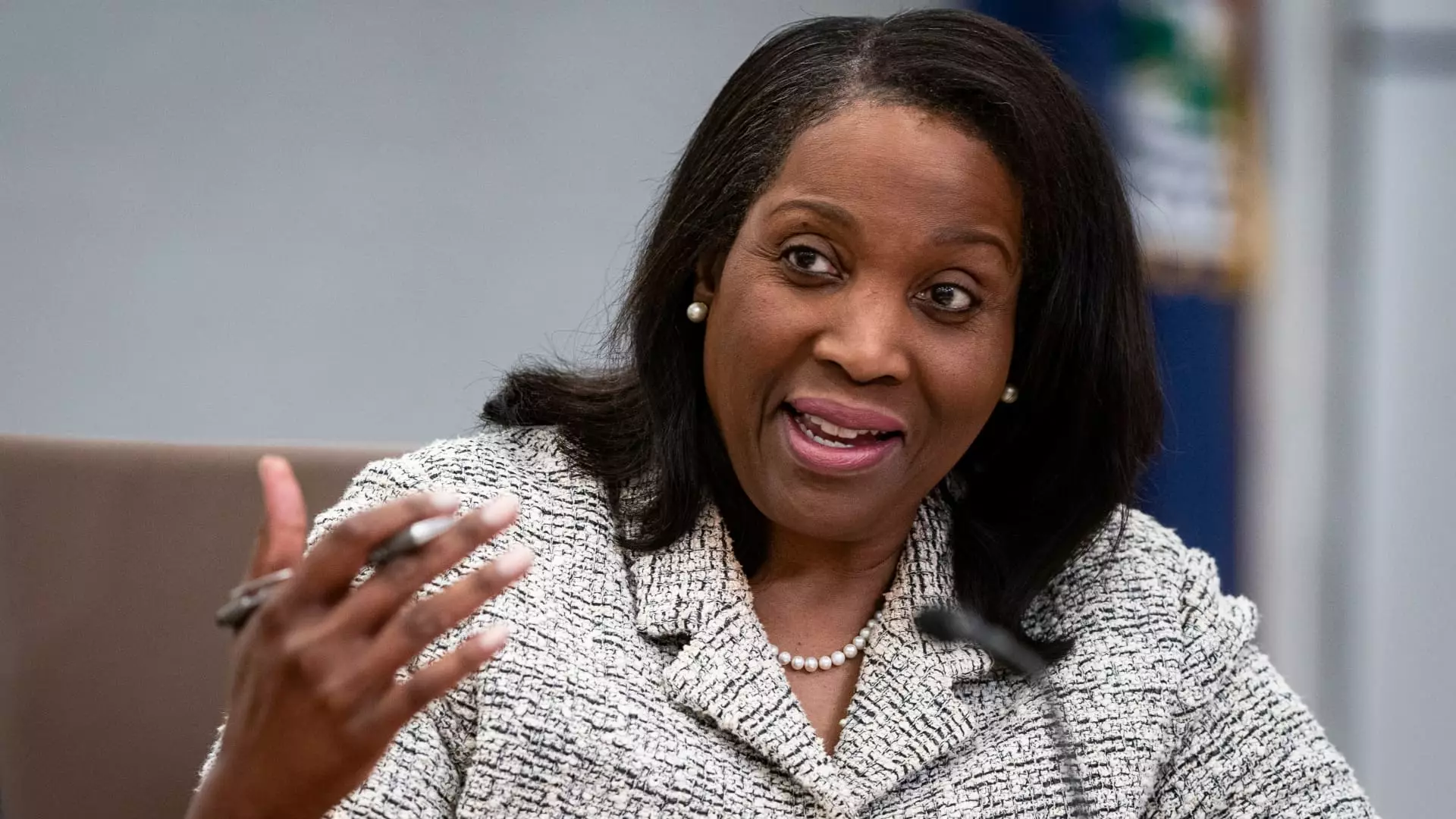In recent developments, the Department of Justice’s (DOJ) move to investigate Federal Reserve Governor Lisa Cook exemplifies a disturbing trend: the blending of political vendettas with legal processes. This case—fuelled by a criminal referral originating not from independent authorities but from a politically motivated critic—raises profound questions about the integrity of governance and the vulnerability of non-partisan institutions to partisan manipulation. While accountability is essential in a functioning democracy, weaponizing legal threats against a member of the Federal Reserve, an institution designed to operate independently, undermines the very foundations of economic stability and judicial neutrality.
The orchestrated effort to pressure Cook into resignation, purportedly backed by criminal allegations, appears more rooted in political retribution than genuine concern for legal integrity. It highlights how powerful political figures can sow chaos through strategic leaks and inflammatory rhetoric, especially when they aim to destabilize individuals who hold differing views or challenge prevailing political narratives. If the rule of law becomes subordinate to political interests, the core principle of impartial justice is compromised, ultimately eroding public trust in institutions meant to serve as safeguards rather than weapons in partisan conflicts.
The Flawed Legal Framework and Its Exploitation
An essential flaw in the unfolding scenario is the clear separation of powers established by law. Under the Federal Reserve Act of 1913, Federal Reserve Governors cannot be dismissed by anyone other than the President—rendering calls for their immediate removal, particularly from a DOJ official acting under political pressure, illegitimate by legal standards. Yet, unbound by legal constraints, entities like the DOJ continue to operate in ways that threaten the independence of key financial institutions.
This exploitation of legal ambiguity reflects a broader liberal critique: the necessity for reforms that clarify and protect the autonomy of the Federal Reserve and similar institutions. An overly politicized justice system risks politicizing economic policy and deprives the country of stable monetary leadership. Cook’s supposed “multiple residencies” — which have been publicly disputed — serve as a convenient pretext rather than a grounded legal reason to impose removal. Such tactics resemble an attempt to create a “charge” where none substantively exists, justifying undue interference under the guise of legal scrutiny, and revealing a willingness of political actors to weaken institutional independence for short-term gains.
The Consequences for Democratic Governance
The controversy over Lisa Cook underscores a critical crisis in American democratic governance: the erosion of checks and balances. While the central bank must be scrutinized and held accountable, it is a dangerous precedent to allow political figures or agencies to reshape its leadership through threats and intimidation rather than through established constitutional processes. The insistence that Cook should resign “today,” as exaggerated in the DOJ letter, exemplifies an anxiety rooted not in justice but in political expediency.
In a center-leaning liberal perspective, these developments underscore the importance of safeguarding institutions from partisan abuse. Democracy is fragile precisely because it relies on the integrity of rule-based processes and the independence of thought leaders free from fear and coercion. When external actors—be they political critics, executive officials, or judicial bodies—operate as pawns rather than pillars of justice, the entire system risks tipping into chaos. Such behavior fosters cynicism, weakens public faith in government institutions, and invites further erosion of democratic norms.
The Political Overreach and Its Broader Implications
The vocal and aggressive push for Cook’s resignation, fueled by accusations from a political opponent and amplified through social media, epitomizes a broader trend of politicizing what should be apolitical institutions. The allegations—concerning alleged residency misstatements—appear trivial compared to the gravity of attempting to oust a Federal Reserve Governor based on political retaliation. These tactics distort the purpose of oversight, shifting focus from genuine accountability to personal and partisan vendettas.
Moreover, the involvement of former President Trump’s circle, with hints of potential firing threats and public pressure, signals a dangerous era where economic stability and institutional independence are subordinate to political spectacle. The liberal view recognizes that such tactics threaten the delicate balance of power that maintains economic and democratic resilience. For meaningful progress, the nation must resist allowing political actors to wield investigations and public shaming as weapons to settle scores or influence policy.
The FBI and DOJ’s incursion into Cook’s career exemplifies how the democratic fabric frays when institutions do not resist political overreach. Protecting the independence of agencies like the Federal Reserve is vital for sustainable economic health, but also for preserving a political environment rooted in fairness and the rule of law. Yielding to temptation for quick political victories risks long-term damage far worse than any alleged residency misstatement. It is a clarion call for liberals and moderates alike to stand firm against the erosion of institutional independence, ensuring that justice remains a pursuit of truth, not a weapon of partisan conquest.


Leave a Reply